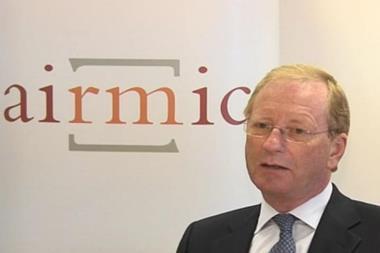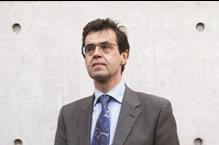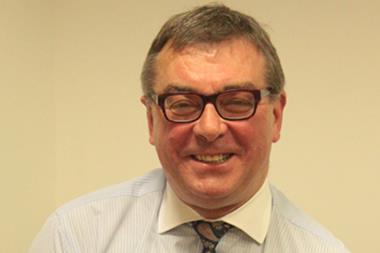Communication is key for risk managers. Airmic's former chairman and Arcadia's risk boss explains the principal challenges facing his profession
You told StrategicRISK that your chairmanship would be about communication. That is also the theme of this year’s conference. Why is it so important to risk managers?
There are lots of different aspects to it.
It’s about communicating the risk management messages throughout one’s own organisation and it’s the key challenge that a risk manager faces. It’s my feeling that we need to be equipping risk managers and ourselves with the capacity to communicate better with the board and different levels of the organisation. Part of that is understanding what we mean by risk management in any guise. It’s also about communicating what the benefits of good risk management would be – and that’s really what we communicate, as opposed to how we communicate. The research that we have done into ERM will help with that; the results of this will be released soon and developed at the conference.
What are the challenges that risk managers face in communicating?
One thing is trying to get risks on the agenda. When I say risks I mean also from a business benefits perspective of enabling as opposed to acting as a barrier to enterprise. The challenge is to understand that addressing risks at the outset has an enabling rather than constricting effect. The barrier is that organisations will often tend to view risk management as being a function that gets in the way of doing business.
As far as ERM is concerned, is the problem getting everyone in the organisation to think about risk?
Absolutely, getting the buy in and setting up a process which allows it to happen without interference in business and normal processes. It’s finding ways of ensuring that people think about risk, but are not held up in doing what they should be doing.
Are these issues you’ll be exploring at the conference?
Without a doubt. Probably more than ever before the conference is an attempt to align the speakers and content with the theme.
What do you hope people will take away from the conference and what do you hope to achieve?
We see it as a unique event in the UK in terms of bringing the whole market together under one roof. The main takeaway values are the networking opportunities.
But I don’t think we emphasise the learning opportunities that arise from the conference enough. This year, there will be a unique opportunity for AIRMIC members to participate in training sessions. The topics are corporate governance, project risk management, reputation and brand management. Paul Hopkin is also doing a session on risk management strategy.
What else is AIRMIC working on?
We will be talking about our claims research at the conference. This is a piece of work that will be ongoing for years. The main thrust is to up the ante on claims and bring it to the forefront of peoples’ thinking. The market has always said that claims ought to be the shop window. We’re actually trying to pull the blinds off the window.
Where do you think AIRMIC is going in the future?
We set the course probably three years ago and that’s the route we’re heading on. One of the problems is not taking on too much. Having said that, over the next six months we are looking to embed a strong culture of service for the members into the organisation. We have done this already by launching a new website and looking at new ways of communicating, as well as enhancing members’ access to workshops and events all around the country. While we are communicating with our members more, we also want to facilitate communication between our members through the use of technology and by making things more efficient.
Are there any particular skills sets that your new chief executive, John Hurrell, brings to AIRMIC?
He’s brought the big business type skills, like risk management, analysis and identifying the crux of an issue. While he’s a solution facilitator, he also has a good way of getting things out of other people. We need an excellent communicator – but also one who can be a strategist, by helping the organisation identify where its strengths and weaknesses lie and the course it should be taking.
Are you seeking to work more closely with the European risk management associations?
It’s quite a difficult area for us, particularly with our UK views, which are often not aligned with European views. We see ourselves as being part of Europe and we’re keen to work alongside the other European risk management associations.
In fact we are very keen that the new Eastern European organisations establish themselves, and we will help them grow as much as we can. Through PRORIM we are working with a number of those associations directly.
We’ve recently seen how the actions of a single person can have a massive impact on global markets. How can risk managers prepare for that?
Funnily enough I’ve asked the same question in financial services focus groups. I asked them what their organisations were doing to head these things off. The effect of what may be happening in any one organisation and how that might impact on another or the environment that we operate in is clearly a difficult thing to understand. But it’s something we need to get our heads round.

















No comments yet